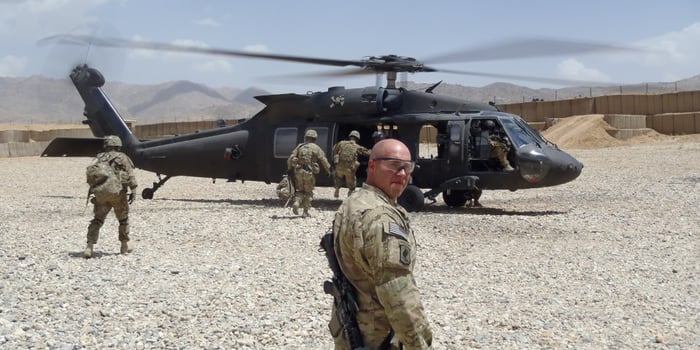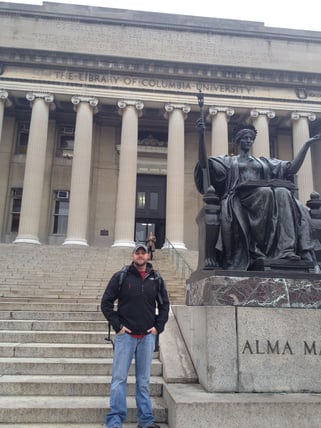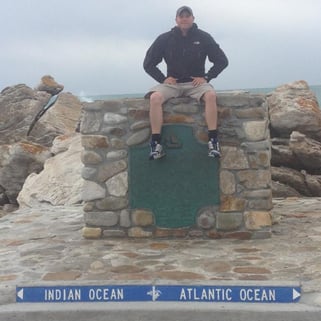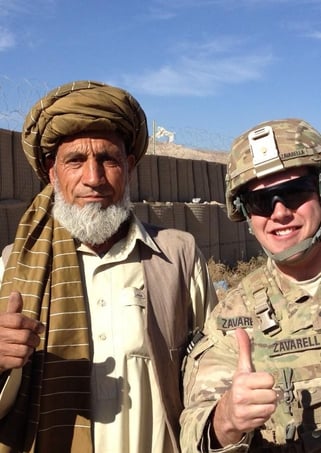
Past HBX CORe participant Marc Zavarella spoke to us about his transition from the military to Columbia University, as well as his plans to pursue a career in medicine.
What role did you serve in the military?
I was an Airborne Infantryman stationed with the 173rd Airborne and deployed to the border between Afghanistan and Pakistan. I was also part of an experimental team engaging in counter-insurgency asymmetric warfare to protect the construction of new infrastructure.
Why did you decide to transition out of the military?
Initially, I intended to transition to an officer from the infantry as I enlisted with a college education. However, during my deployment, I applied to several highly-ranked schools and received positive replies. Although my Commander gave me the keys to any avenue I could dream of pursuing in the military, I could not refuse the offer to attend a university like Columbia.

How did you think about your transition to the private sector?
At first, my transition to a rigorous education program proved difficult as my studying routine and memorization skills were a bit rusty, and limited resources existed for veterans transitioning to the private sector. However, since that time, a number of organizations have popped up to help transitioning veterans find employment and apply to school. Thankfully, Columbia University offered a wealth of veteran support through their in-house liaison.
What forms of education did you consider, and why did you choose HBX?
My main goals were to learn science, understand and employ the scientific process through pre-medical coursework, ready myself for the MCAT examination required for medical school applications and employment in the healthcare industry. A neurosurgical mentor of mine suggested I explore the business side of healthcare which is how I discovered HBX. He suggested that having a business skill set will be valuable as I work to move healthcare forward and deliver the best possible healthcare to patients at affordable prices.

What was your HBX experience like?
My experience with HBX was incredible. It was a rigorous program and I highly recommend Harvard Business School's transformational pedagogical model. There were times in the program where I struggled with the material, but the collaborative framework created an incredible sense of belonging and partnership between the participants. This program's structure also drove us to ask questions and search for the answers, instead of having them presented right to us. The active learning model allowed us to better understand the material and engage with eachother in meaningful ways.
What are your plans now?
I intend to complete my healthcare management program at Columbia while I apply to medical schools. I am at a “crucible moment” as I enter a wonderful and supporting marriage and face the decision of carrying on towards medical school or fully committing to physician training. However, I am extremely excited at the possibility that medical school holds. I find myself being happiest with the idea of being a physician executive employing a cost-friendly approach to patient-centered healthcare.

What advice would you have for others beginning their transition?
I would advise all transitioning veterans to reach for the stars. Do your research and work hard on your applications. Don't be afraid to ask your superiors for a recommendation and take every move you make seriously. Research the functionality of the GI Bill and how it can help you get to where you want to go. Ask questions—if you are interested in a school, call or visit to find out more. It is okay to ask for suggestions. Lastly, don’t sell yourself short. America is the land of opportunity, and if you seek an opportunity with the heart and desire that you put into volunteering for the military – you are bound to find happiness and a fulfilling career.
The CORe community consists of a rich and diverse group of learners. Want to learn more about other students who've participated in the program?








